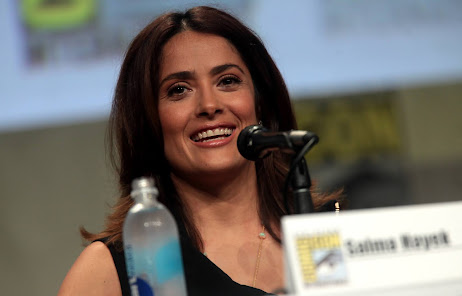On Actor Exploitation: Confessions of an Alleged Killjoy
Regular visitors to this blog are well aware of a particular thematic drum I keep beating: the sexual exploitation of our entertainers. It is a drum I will continue to beat. From time to time, however, it is helpful to zoom out and take in the larger picture. Now is one of those times.
Over the years, I have highlighted dramas like Fifty Shades of Grey, television shows like Game of Thrones, and comedies like Knocked Up and The 40 Year Old Virgin. I have also highlighted the experience of individual actors, including Jennifer Lawrence, Evangeline Lilly, and Margot Robbie. Reading these exposés might lead some to think of me as a pessimistic killjoy with a Pharisaic dedication to condemning anything and everything I can lock my sights on.
My point, however, is not to condemn the filmmaking industry outright, nor to condemn all use of sexual themes in entertainment. (In fact, I have defended both on this blog, including here and here.) Nor has my point been to mischaracterize the experience of these actors, as if the entirety of their careers can be defined by subjugation.
Human life and experience are complex. Consider, for example, the focus of my most recent exposés: Salma Hayek. It seems obvious Hayek loves filmmaking, evidenced in part by her tenacious commitment to her craft. That is why I chose a picture of Hayek smiling for this blog post. As she herself has said about her career, “It worked out pretty well. Life has been good to me.”
Probably part of the reason why Hayek’s public sexualization didn’t damage her psyche more thoroughly than it could have is because of how rigidly she has separated her public persona from who she actually is:
I see people who are professional glamorous movie stars, and they are nothing like me. Who they are to other people is everything to them. I see them look at themselves almost as an outsider looking in. They have very little interest in other people, not because they’re bad people but because they’re so tied into being the people the public wants them to be. Everything is seen through the eyes of their legacy. It is part of their design, and it was never part of my design.
So no, Hayek’s life is not one big sob story. But neither are her experiences of sexual exploitation simply a blip on the radar, or a mere footnote to her career. The reason I have chosen to belabor the evils committed against her—and countless others—is because these evils have largely been ignored or misunderstood or dismissed, both by society in general and the church in particular.
The sexual exploitation of actors in modern entertainment is a prevalent problem. To be sure, it has been addressed with greater readiness in the wake of the #MeToo movement. But even many within this movement, while observing this problem, have fallen prey to misguided and insufficient solutions—often tantamount to putting a Band-Aid on a gushing artery.
We can, and must, change our perspective on this issue. We can, and should, own our role in the perpetuation of this abuse. And we can, and ought to, make wise and loving choices as consumers to better love our entertainers as we love ourselves.
The entertainment industry involves a myriad of moving parts, many of them interlocked and interdependent. I focus so much attention on actor exploitation in particular, not because it’s all there is to talk about, but because there needs to be more talk about it.
